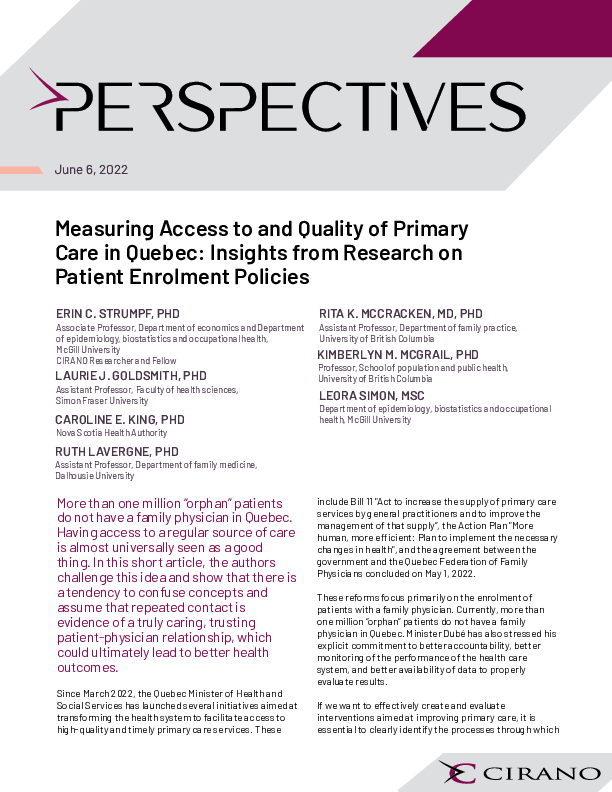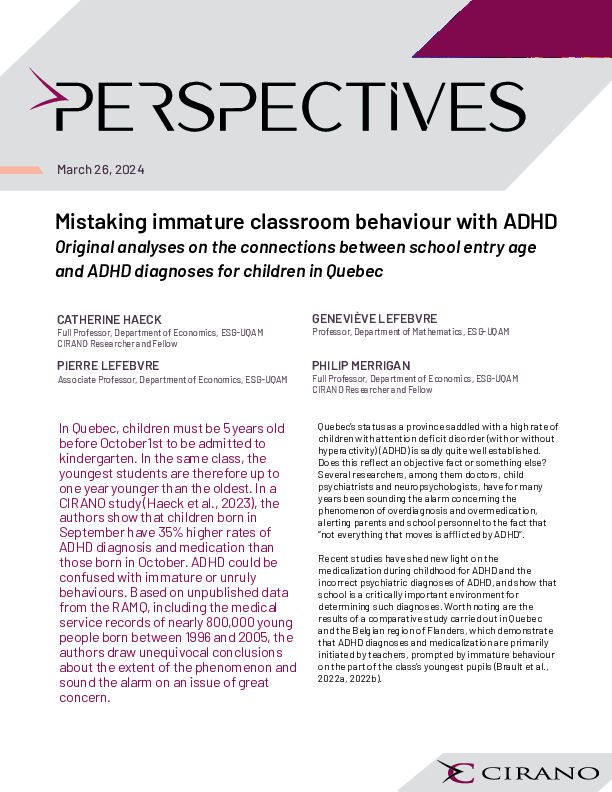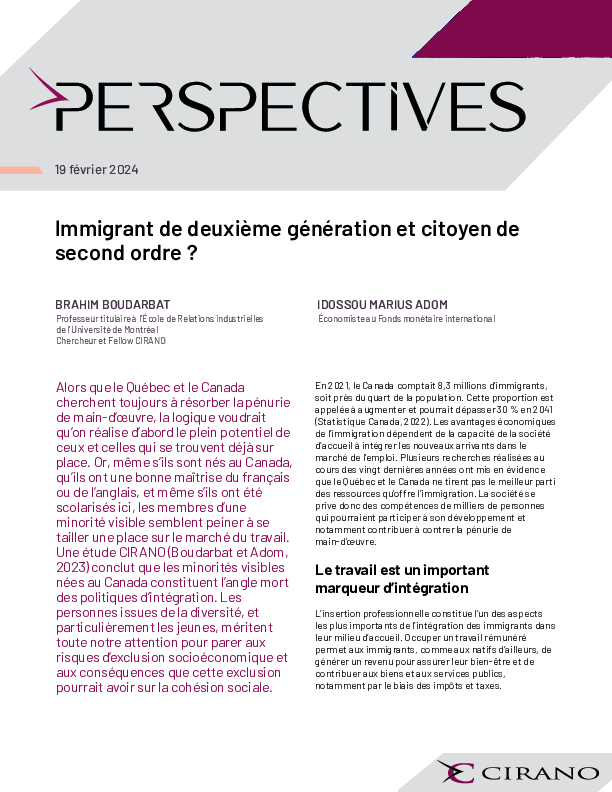Measuring Access to and Quality of Primary Care in Quebec: Insights from Research on Patient Enrolment Policies
More than one million “orphan” patients do not have a family physician in Quebec as revealed by the department of Health and Social Services scoreboard. This spring, Minister Dubé has launched several initiatives aimed at transforming the health system to facilitate access to high-quality and timely primary care services. These reforms focus primarily on the enrolment of patients with a family physician.
Having access to a regular source of care is almost universally seen as a good thing. In this short note, Erin C. Strumpf, McGill University Professor and Fellow CIRANO, and her co-authors challenge this idea. They show that there is a tendency to confuse concepts and assume that repeated contact is evidence of a truly caring, trusting patient-physician relationship, which could ultimately lead to better health outcomes.
If we want to effectively create and evaluate interventions aimed at improving primary care, it is essential to clearly identify the processes through which patient care can be improved and to identify the most relevant measures that actually capture the outcomes of interest such as affiliation and continuity of care. That is what the authors precisely do here. By being honest and clear about what we can actually measure and evaluate with the data we have, they argue that we create an opening for more creative approaches to health policy evaluation.




